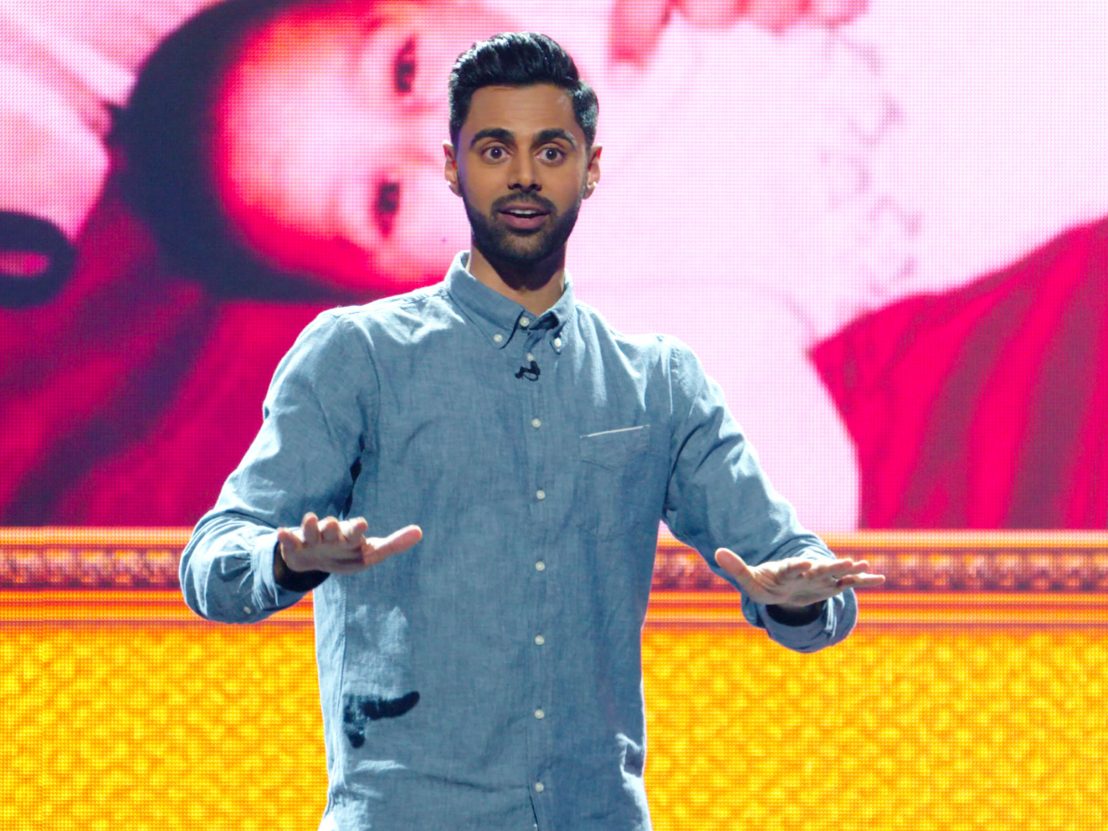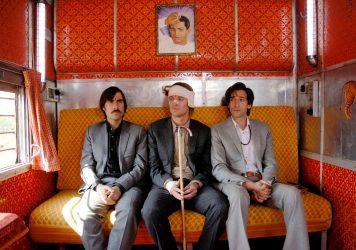
Earlier this year, comic Hasan Minhaj stood at the podium of the White House Correspondents’ dinner. In a room full of journalists from some of the country’s biggest media organisations, he quipped, “I would say it is an honour to be here, but that would be an alternative fact. No one wanted to do this, so of course it lands in the hands of an immigrant.” He went on to draw comparison between journalists as minorities in modern society: “If one of you messes up, [the president] blames your entire group.” The speech is spectacular, but it resonates most pertinently when he aligns his personal history with the experience of the mostly white audience.
Minhaj’s latest stand-up special, Homecoming King, is entertaining in the same sharp and theatrical way. As with his Correspondents’ speech, the laughter he generates carries a certain bitterness; his punchlines are loaded with uncomfortable truths – about the multifaceted racism faced by immigrants and ethnic minorities their whole lives. Particularly affecting is the way he describes growing up as a young immigrant, from his first experience of racism, to being the target of hate crime.
The special begins in Aligarh, a small town in India from which Minhaj’s parents hail. His father had heard of his mother’s beauty – and that her family owned a camera – and asked for her hand in marriage without even meeting her. “YOLO,” the comic jokes, contrasting the courtship to that of his peers’ who “swipe for love”. This generational difference acts as a catalyst for his first real heartbreak.
As a teenager, Minhaj developed “chemistry” with his calculus partner, Bethany Reed. (He had bounced back from confessing his love to his first crush at age six, who told him “You’re the colour of poop.”) They’d chat on AOL Instant Messenger, do homework together, and eventually she asked him to the prom. But on the big night, he arrived at her doorstep to find a white guy putting a corsage on her wrist. Her parents apologised to him, their excuse being that they will be taking photos.
Racism exists on a spectrum, Minhaj explains. On one end, there are people like Mr and Mrs Reed, who fed him brownies and asked him about his dreams, and whose intolerance is disguised in selective liberalism. On the other, ordinary African-Americans fear for their lives in the presence of police officers. Somewhere in the middle sits the event that happened outside Minhaj’s family home the night after 9/11.
He recalls the phone ringing, only for hatred and intolerance to spill from the receiver as the voice down the other end snarled the words “sand nigger” and “dune coon”. Outside, the windows to their family car have been smashed; as Minhaj runs up and down his street, eager to confront the perpetrators, his father simply cleans up the shattered glass.
While gesturing his father’s wild-eyed but steady-handed sweeping, Minhaj recalls his parent’s words in Hindi. The phrase is long, and it evoked a familiar awkwardness in me – a residue of the embarrassment of being spoken to in Mandarin in public as a teenager. But by giving space for phrases in Hindi, the comic takes pride and ownership of his mother tongue. He doesn’t slip into the comedic trope of accents.
The phrase translates to: “These things happen, and these things will continue to happen. That’s the price we pay for being here.” His father sees racism as inevitable, part of paying “The American Dream tax”. The special is interspersed with fantastically atmospheric animated slides, and on the screen behind Minhaj the 50 stars of the American flag fall off one by one.
But being born in the US, Minhaj is from a different generation – one of empowerment by the “audacity of equality”. He recites his home country’s Constitution: “Life, liberty, the pursuit of happiness. All men are created equal.” The crowd in his hometown of Davos, California erupts, almost drowning him out as he emphasises, “I’m equal.” As I watched and rewatched this scene, that initial sense of embarrassment was replaced by a feeling of triumph.
Minhaj’s comedy soars when aligning difference. Whether a family emigrated or stayed in one place, anyone can feel alienated from their parents due to social, political, or cultural differences. Most can relate to young love prohibited by the family; many know the feeling of having different attitudes towards social issues from the generation above. The comic normalises the immigrant parent-child relationship as universal, and by playing homecoming king to his own success story, he puts the experience of a first generation immigrant proudly in parallel to that of any other white American. He’s equal.
Published 17 Jun 2017

By Grace Wang
The comic’s latest special will make you more compassionate towards your most embarrassing thoughts.

The Whitmans, the Tenenbaums and others lifted my spirits at a time when it seemed nothing could.

The likes of Raw, The Transfiguration and others speak directly to self-aware, socially-conscious teens.